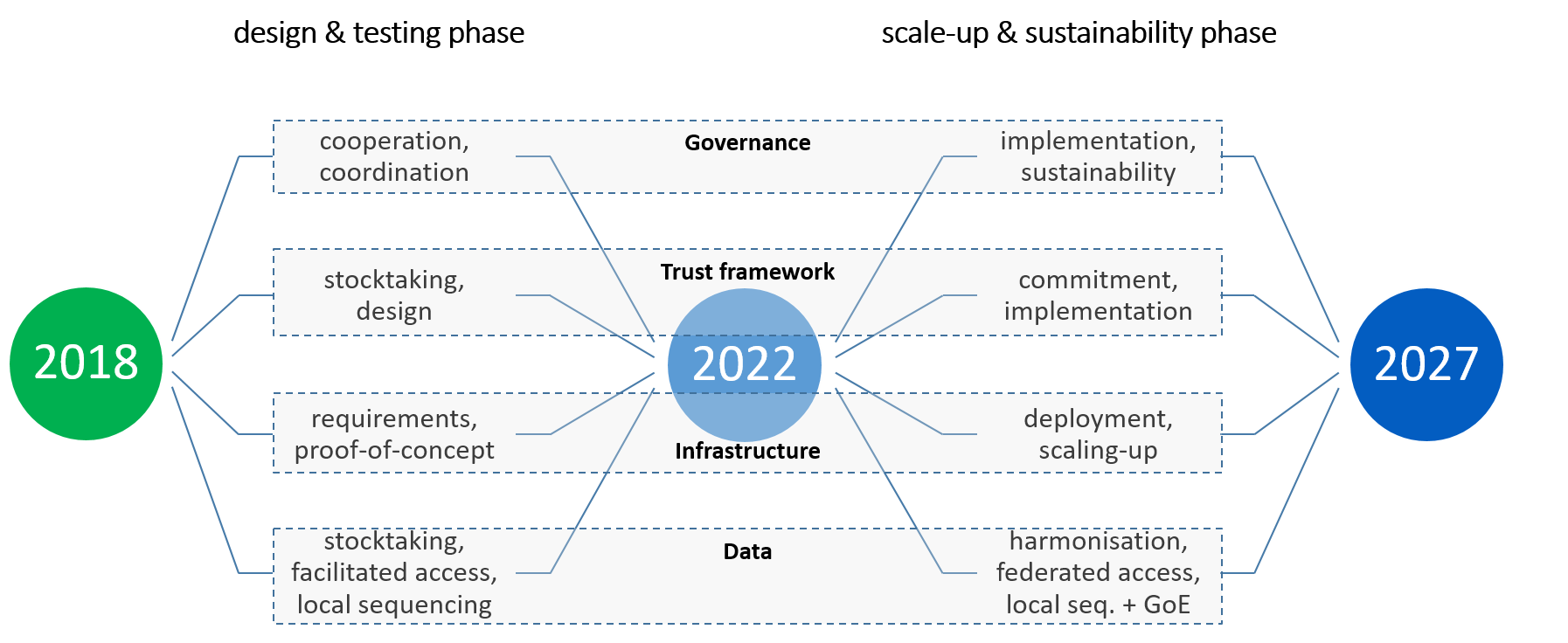Facial verification has advanced significantly over the past years, powering Snapchat filters and concert security to software that can unlock iPhones and make sure that people were wearing masks. This technology is also becoming increasingly important in China, as it has become an integral part of the security and surveillance system.
Singapore boasts one of the world's most advanced national digital identity programs, SingPass, which enables residents to use more than 400 digital services, including accessing tax returns and applying for public housing. SingPass, which was launched in 2003, allows users to conduct transactions easily and securely with over 60 government entities online. As for the program's management, it falls under the umbrella of the Government Technology Agency (GovTech) and is subject to periodical review and continuous security improvements to ensure safe public services for users. Over the course of several years, SingPass has gone through many improvements, granting it various features and advantages, such as the easy-to-use user interface and the option to access it via a mobile phone, not to mention high-security capabilities, such as the blockchain two-step verification involving sensitive data. SingPass is now the digital identity of every Singapore resident thanks to developments and improvements that made it a portal with secure access to over 500 digital services provided by more than 180 public and commercial entities.
To enhance digital transformation efforts, Singapore's four million people will have access to public and other services through the facial verification feature provided by the National Identity Program. The latter allows all SingPass users to prove their identity and confirm that they are benefiting from e-government services whether through computers or kiosks designated for the program. Transactions such as paying taxes can now be completed with a simple facial biometric scan, replacing the need for passwords. This feature, called SingPass Face Verification, allows users to safely log in to their accounts without having to remember the password in public kiosks or when using their personal computers, tablets, or mobile phones.
Facial recognition technology uses biometrics to map facial features, identify faces, and know more about a user's face geometry by measuring the distance between the person's eyes, forehead, and chin, for example. This process generates a "facial signature" which is compared to a database of known facial signatures. This technology was used to open smartphones and access bank accounts, but Singapore is the first country to use it within the National Identity Program.
This program is part of the Smart Nation initiative, launched in 2014, with a $2.4 billion (USD 1.75 billion) budget. This initiative aims at making a qualitative leap in online public services by granting access to open data, adding interconnected lampposts with sensors, and introducing cashless payment systems. This could not have been made possible without the powerful 4G network deployed across the country and the widespread use of smartphones, with an average of 1.5 phones per person.
The use of facial verification technology in SingPass is one of the most important efforts aimed at incorporating modern technologies into our daily lives. However, it still faces some concerns and warnings from privacy advocates and technology watchdogs regarding the risk of abuse. The government of Singapore reassured everyone that it is collecting data to complete transactions only and that selfie data are maintained in safe government servers and are deleted after 30 days.
This is not the end for this technology and the data collected in this process. The new face verification system can be used in private companies and the education sector in which student attendance is necessary when taking exams. Facial verification makes it easier to access banking and electronic services without having to manage several accounts and different passwords. Private data will not be shared with the private sector.
The Singaporean project includes some features that prevent people from hacking this technology. The development of this new system requires joint efforts between iProov, a UK-based biometric authentication supplier, and Toppan Ecquaria, a Singapore-based digital government service platform provider. This technology developers claim that it is able to prevent logins made with photographs, masks, and deepfakes. This technology has been tested by the US Department of Homeland Security, the UK government, as well as the government of Singapore. This technology can also prevent replay attacks that use a recording of a person's face for the technology to identify. Thanks to these efforts, Singapore will be the first country to use facial verification within the National Identity Program.
Resources:






